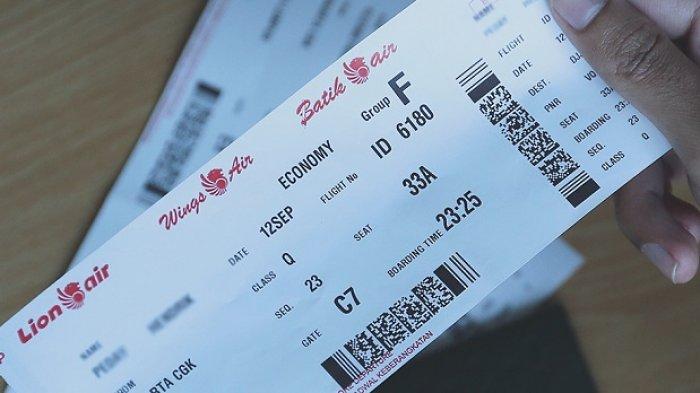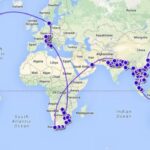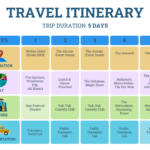World Travel Ticket unlocks a world of possibilities, offering intrepid travelers a passport to unparalleled adventures. Imagine crafting an itinerary spanning continents, experiencing diverse cultures, and creating memories that will last a lifetime, all with the efficiency and often cost-effectiveness of a single, comprehensive ticket. This isn’t just about ticking off destinations; it’s about maximizing your travel experience and optimizing your budget.
We’ll delve into the intricacies of world travel tickets, exploring the various options, their advantages and disadvantages, and ultimately helping you determine if this is the right travel strategy for you.
From understanding the different types of tickets available—round-the-world tickets, regional passes, and open-jaw options—to navigating the complexities of booking and planning, we’ll cover it all. We’ll also analyze the cost-effectiveness, comparing it to booking individual flights and accommodations. Finally, we’ll profile the ideal traveler for this type of ticket, ensuring you have the knowledge to make an informed decision that aligns with your unique travel style and budget.
Defining “World Travel Ticket”

A World Travel Ticket, in its simplest form, is a pass that allows extensive international travel within a defined period. Unlike a single-destination ticket, it offers flexibility and cost-effectiveness for those planning multi-country trips, often encompassing a vast network of airlines and destinations. These tickets represent a strategic approach to global exploration, streamlining the booking process and often providing significant savings compared to purchasing individual flights.The concept revolves around accessing a predetermined selection of destinations for a fixed price, offering a degree of freedom in itinerary planning while adhering to specific terms and conditions.
The precise nature of this freedom varies considerably depending on the type of ticket purchased. Understanding the nuances of these different ticket types is crucial for maximizing value and ensuring a seamless travel experience.
Types of World Travel Tickets
Several types of world travel tickets cater to diverse travel styles and budgets. The key differences lie in the geographical coverage, the airlines included, and the overall cost. Some tickets offer a wider range of destinations and airlines, but come at a premium price. Others might focus on a specific region, offering a more affordable option for those with a more focused travel plan.
Consider these examples to illustrate the variety available.
- Round-the-World (RTW) Tickets: These tickets typically allow travel in one direction, circling the globe, with a set number of permitted stops. Airlines often offer these tickets, and their pricing depends on the number of stops, class of service, and the specific route. For example, a RTW ticket might allow for stops in Asia, Europe, and North America, with a specific maximum mileage limit.
- Regional Passes: These passes concentrate on a particular geographic area, such as Southeast Asia, South America, or Europe. They provide a more cost-effective way to explore a region extensively. For instance, a Southeast Asia regional pass might include flights between countries like Thailand, Vietnam, Cambodia, and Malaysia, at a fraction of the cost of individual tickets.
- Multi-Stop Tickets: These are more flexible than RTW tickets and are often sold by airlines or online travel agencies. They allow travelers to customize their itinerary with multiple stops, but typically require a more linear route compared to the circular nature of RTW tickets. The pricing depends on the number of stops and destinations chosen.
World Travel Ticket Price and Coverage Comparison
The price of a world travel ticket is highly variable and depends on several factors, including the duration of validity, the number of flights allowed, the class of service (economy, business, first), and the geographic scope of the ticket. A RTW ticket encompassing multiple continents in business class will obviously be far more expensive than a regional pass in economy class covering a smaller area.
| Ticket Type | Geographic Coverage | Typical Price Range (USD) | Airlines Included |
|---|---|---|---|
| Round-the-World (RTW) – Economy | Global | $2000 – $5000+ | Varies greatly depending on the airline alliance |
| Round-the-World (RTW) – Business | Global | $10,000 – $30,000+ | Varies greatly depending on the airline alliance |
| Regional Pass (Southeast Asia) – Economy | Southeast Asia | $500 – $1500 | Specific airlines within the region |
| Multi-Stop Ticket (Europe) – Economy | Europe | $800 – $2500+ | Varies depending on the chosen airlines and route |
Note: These price ranges are estimates and can fluctuate based on seasonal demand, specific routes, and booking time. It is crucial to conduct thorough research and compare prices from different providers before making a purchase.
Benefits and Drawbacks of World Travel Tickets
World travel tickets, also known as round-the-world (RTW) tickets, offer a compelling proposition for intrepid adventurers. They promise significant cost savings and unparalleled flexibility, but like any travel arrangement, they come with their own set of potential downsides. Understanding these benefits and drawbacks is crucial for determining if a world travel ticket is the right choice for your next epic journey.
Advantages of World Travel Tickets
The primary allure of a world travel ticket lies in its potential for substantial cost savings. Airlines often offer discounted fares when you book multiple flights as a single package. This is particularly true for longer, more complex itineraries that would be significantly more expensive if booked individually. Furthermore, the planning process is simplified; instead of juggling multiple bookings and potential itinerary changes across different airlines, you have a single ticket and a single point of contact for adjustments.
This streamlined approach is invaluable for extensive trips, saving you both time and potential headaches. Consider a traveler planning a three-month trip across Asia, Europe, and South America. Booking each leg separately would involve significant time and effort, not to mention potentially higher costs due to individual flight pricing. A world travel ticket consolidates these bookings, providing a more efficient and cost-effective solution.
Disadvantages of World Travel Tickets
While the potential for cost savings is attractive, world travel tickets also present limitations. Flexibility can be a double-edged sword. While you have a broad framework, making significant changes to your itinerary often incurs hefty fees, sometimes negating the initial cost savings. Furthermore, the choice of airlines and routes is often limited to those participating in the RTW ticket program.
This can restrict your options, potentially forcing you to compromise on your preferred travel style or destination choices. Imagine wanting to fly a specific budget airline known for its comfort and amenities; if that airline isn’t part of the RTW program, you might be forced to choose a less desirable option. The restrictions imposed by the ticket also limit spontaneity; significant deviations from the planned route can be very expensive or even impossible.
Scenarios Where a World Travel Ticket is Beneficial
World travel tickets shine when planning extensive, multi-continent trips with a relatively fixed itinerary. For example, a gap year traveler with a pre-planned route across Southeast Asia, Australia, and South America would likely benefit from the cost savings and simplified planning of a world travel ticket. Similarly, someone taking a sabbatical and wanting to explore multiple regions over a six-month period could find this type of ticket ideal.
The key is having a well-defined itinerary with minimal expected changes.
Scenarios Where a World Travel Ticket is Not Beneficial
A world travel ticket is less suitable for travelers who prioritize spontaneity and flexibility. If you anticipate significant changes to your travel plans or desire the freedom to adjust your route on a whim, a world travel ticket might prove more restrictive and costly than booking flights individually. Similarly, those planning shorter trips or focusing on a single region might find that booking individual flights offers better value and more flexibility.
A traveler planning a two-week trip to Europe, for instance, would likely find that booking individual flights provides greater control and potentially lower overall costs than a world travel ticket.
Types of Travelers Suitable for World Travel Tickets

World travel tickets, also known as round-the-world (RTW) tickets, aren’t a one-size-fits-all solution. Their effectiveness hinges heavily on the traveler’s profile, travel style, and budget. Understanding these factors is crucial to determining if an RTW ticket is the right choice. This section will analyze different traveler types and how well RTW tickets align with their needs.
The ideal candidate for a world travel ticket is someone with a flexible itinerary, a penchant for adventure, and a desire to explore multiple destinations within a specific timeframe. They’re comfortable with a degree of spontaneity and are less concerned with meticulously planned itineraries. Conversely, travelers who prefer highly structured trips, luxury accommodations, or a specific set of activities may find an RTW ticket less beneficial.
Traveler Profiles and Suitability for World Travel Tickets
Let’s examine several travel styles and their compatibility with world travel tickets. The key factors to consider include flexibility, the number of destinations, and the overall travel duration.
Backpackers and Budget Travelers: Backpackers and budget travelers are often ideal candidates. RTW tickets can offer significant cost savings compared to purchasing individual flights, especially if traveling to numerous locations. The flexibility inherent in many RTW ticket options allows for spontaneous changes in plans, perfectly aligning with the typical backpacking style. However, it’s important to note that budget airlines may not always be included in the ticket’s airline partnerships, potentially affecting the overall cost-effectiveness.
Luxury Travelers: Luxury travelers may find RTW tickets less suitable. While some premium airlines are included in some RTW ticket alliances, the focus is generally on efficiency and cost-effectiveness, not necessarily luxury. The constraints on specific routes and airlines might restrict the ability to choose the most luxurious options. For luxury travel, bespoke itineraries tailored to specific preferences are usually more appropriate.
Adventure Travelers: Adventure travelers, those seeking unique experiences and off-the-beaten-path destinations, can benefit significantly. The flexibility of many RTW tickets allows them to adjust their plans based on discoveries and opportunities. This type of traveler is usually more accepting of less predictable travel arrangements, making the RTW ticket a viable option. However, accessing remote locations might require additional flights or ground transportation not covered by the RTW ticket.
Family Travelers: Family travelers might find RTW tickets beneficial if they have a flexible travel schedule and are comfortable with a less structured itinerary. The cost savings can be substantial for a family traveling to multiple destinations. However, the need for child-friendly accommodations and activities might necessitate additional planning and potentially limit spontaneity.
Impact of Travel Budget on World Travel Ticket Selection
Budget significantly influences the feasibility and desirability of a world travel ticket. The price of an RTW ticket itself varies widely depending on factors like the number of destinations, the airlines included, and the class of travel. A higher budget allows for greater flexibility in choosing airlines and destinations, potentially leading to a more comfortable and luxurious journey.
Low Budget Travelers: Low-budget travelers may find RTW tickets attractive due to potential cost savings compared to booking individual flights. However, they might need to compromise on airline choices, potentially opting for budget airlines or longer layovers to secure the most affordable option. Careful planning and research are essential to maximize cost-effectiveness.
Mid-Range Budget Travelers: Mid-range budget travelers have more flexibility in their airline and destination choices. They can balance cost savings with a reasonable level of comfort and convenience. They may opt for a mix of budget and full-service airlines to optimize their budget while maintaining a comfortable travel experience. This group often finds the sweet spot in terms of value and flexibility.
High Budget Travelers: High-budget travelers may find RTW tickets less appealing unless they prioritize convenience and flexibility over luxury. While they could afford the most expensive RTW options, they might still find that bespoke itineraries offer better control over their travel experience and access to premium services. The cost savings of an RTW ticket might not be a significant factor for this group.
Ultimately, a World Travel Ticket represents a powerful tool for the discerning traveler. Its effectiveness hinges on careful planning, a clear understanding of your travel style, and a realistic assessment of your budget. By weighing the benefits against potential drawbacks, and by meticulously researching the various options available, you can harness the power of a World Travel Ticket to craft an unforgettable global adventure.
Don’t just travel—strategize your journey for maximum impact and minimize unexpected costs. The world awaits; are you ready to explore it strategically?

